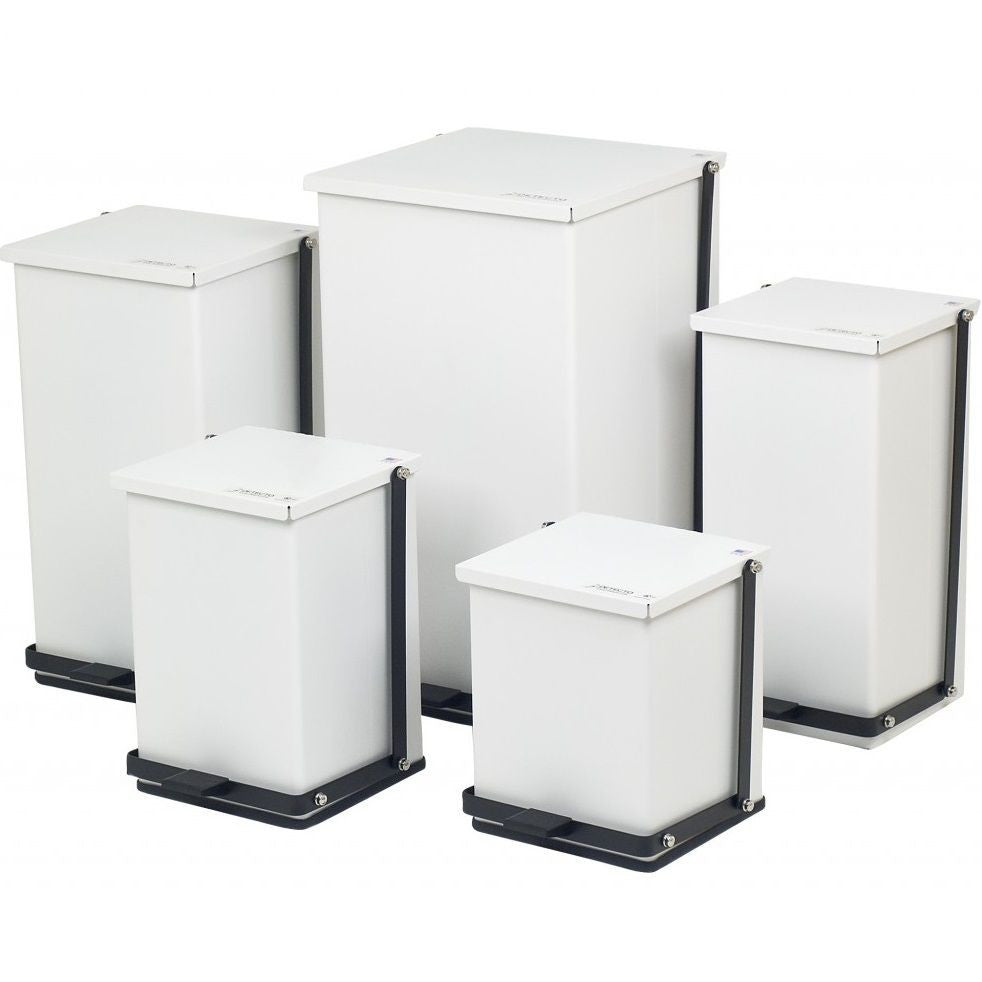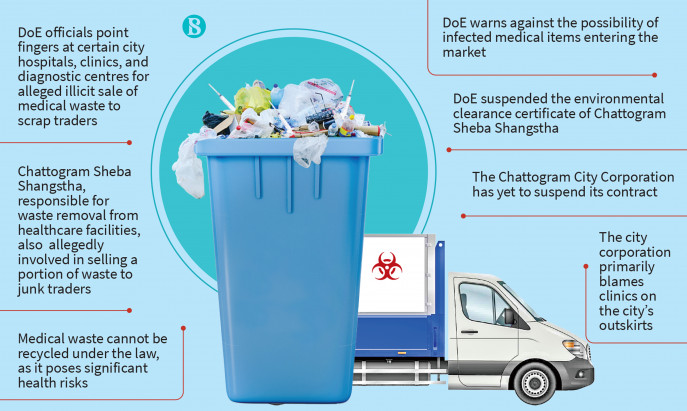Your Trusted Companion: Medical Waste Removal Services Tailored to Your Needs
Your Trusted Companion: Medical Waste Removal Services Tailored to Your Needs
Blog Article
Stay Ahead of Laws: Expert Advice on Medical Waste Disposal
In a world where the healthcare industry is continuously developing, it is vital for clinical facilities to stay ahead of laws when it comes to the proper disposal of clinical waste. With stringent standards and regular regulative adjustments, it can be testing to browse the intricacies of this process. Nevertheless, with experienced recommendations, centers can make certain conformity and minimize dangers linked with inappropriate waste disposal. From recognizing the different categories of medical waste to executing the ideal collection and partition methods, this discussion will certainly offer beneficial understandings and workable tips to aid centers stay ahead of guidelines in the ever-changing landscape of clinical waste disposal.
Recognizing Clinical Waste Categories
Recognizing medical waste categories is necessary for correct disposal and monitoring in medical care centers. Medical waste refers to any kind of waste created by health care tasks that might posture a threat to public wellness or the atmosphere. It is essential to categorize clinical waste accurately to guarantee its secure handling, treatment, transport, and disposal.
There are several groups of clinical waste that healthcare centers need to be aware of. The most common groups consist of contagious waste, pathological waste, sharps waste, pharmaceutical waste, and chemical waste. Each category has particular standards and guidelines for its proper administration and disposal.
Contagious waste consists of materials contaminated with blood or other physical liquids, such as handwear covers, gowns, and laboratory societies. Pathological waste describes human cells, organs, or body components that require special handling and disposal. Sharps waste consists of utilized needles, syringes, and other sharp things that can cause injury and transfer infections. Drug waste consists of expired, extra, or polluted medications that require mindful handling and disposal. Last but not least, chemical waste includes solvents, disinfectants, and other chemical materials made use of in healthcare facilities.
Remaining Up-To-Date With Regulatory Changes
Remaining current with regulatory modifications is vital for medical care facilities to make sure compliance and proper monitoring of clinical garbage disposal. medical waste removal services. With regulations constantly progressing, it is important for medical care facilities to stay up-to-date to avoid fines, fines, and possible damage to the atmosphere and public wellness
To remain in advance of regulative changes, healthcare centers should develop a system for monitoring and tracking updates. This can be done by subscribing to regulatory e-newsletters, going to meetings and workshops, and actively joining industry associations. Furthermore, facilities ought to assign an employee or team in charge of remaining educated and disseminating information to appropriate stakeholders.
Regular interaction with regulatory companies is also essential. Medical care centers should develop connections with neighborhood, state, and federal companies to guarantee they are conscious of any type of modifications in policies that may impact their waste management techniques. This can be done with regular conferences, involvement in public comment periods, and aggressive involvement with governing companies.
Furthermore, health care facilities should take into consideration partnering with waste monitoring firms that concentrate on medical garbage disposal (medical waste disposal services with WasteX). These business are typically skilled in the current guidelines and can offer assistance and support to guarantee conformity
Implementing Appropriate Collection and Segregation Methods
To successfully manage clinical waste disposal, health care facilities have to develop proper collection and partition approaches in conformity with governing standards. Applying these techniques makes certain the secure handling and disposal of potentially hazardous materials, safeguards the setting, and lessens the danger of injuries and infections to medical care employees and the general public.
Appropriate collection and partition approaches involve making use of designated containers and labeling systems. Medical care centers must offer plainly labeled containers for different sorts of medical waste, such as sharps, transmittable waste, pharmaceutical waste, and non-hazardous waste. These containers should be color-coded and clearly significant to prevent complication and promote simple recognition.
In addition, health care centers need to train their personnel on the correct treatments for gathering and setting apart clinical waste. This includes educating them on the various kinds of waste, the ideal containers to use, and the significance of following guidelines and standards. Routine training sessions and correspondence course must be carried out to ensure that personnel stay updated on finest methods.
In addition, medical care facilities should develop a system for routine collection and disposal of medical waste. This may include partnering with licensed waste management business that focus on medical waste disposal. These business will certainly make sure that the accumulated waste is carried and taken care of in conformity with governing requirements.
Picking the Right Disposal Approaches

Incineration is one of one of the most usual and reliable techniques for throwing away certain kinds of clinical waste, such as pathological waste and sharps. It entails the regulated combustion of waste at high temperatures, decreasing it to ash. Nonetheless, incineration can release unsafe pollutants into the air and add to air pollution.

Chemical treatment involves the use of chemicals to counteract the waste and disinfect. Microwave treatment makes use of microwave energy to warm and sanitize the waste.
Making Sure Compliance Through Documentation and Training
After thoroughly thinking about the appropriate disposal methods for clinical waste, medical care centers have to make sure compliance with laws and reduce ecological effect by executing effective documentation and training procedures. This step is important in keeping a sustainable and safe setting for both healthcare workers and the basic public.

Health care employees that deal with clinical waste should receive ideal training on waste partition, taking care of, and disposal treatments. By providing detailed training, health care facilities can encourage their staff to make informed decisions and lessen the risk of inappropriate waste disposal.
Final Thought
To conclude, remaining in advance of laws in clinical waste disposal is crucial for healthcare facilities. medical waste removal near me. Understanding the different categories of clinical waste, staying updated with regulative adjustments, applying why not try this out appropriate collection and partition techniques, selecting the appropriate disposal approaches, and making sure compliance with documents and training are all crucial actions. By adhering to these guidelines, medical care companies can properly handle and get rid of of medical waste in a liable and secure way
From recognizing the various categories of medical waste to applying the appropriate collection and segregation methods, this discussion will give workable tips and useful insights look at this web-site to help facilities stay in advance of regulations in the ever-changing landscape of medical waste disposal. - medical waste disposal services with WasteX
The most usual categories consist of transmittable waste, pathological waste, sharps waste, pharmaceutical waste, and chemical waste. Healthcare facilities need to provide plainly labeled containers for various kinds of medical waste, such as sharps, infectious waste, pharmaceutical waste, and non-hazardous waste. Health care centers need to establish an extensive system to tape and track all aspects of clinical waste disposal, consisting of kinds of waste created, amounts, and disposal approaches made use of. Health care employees that handle medical waste must get suitable training on waste partition, handling, and disposal treatments.
Report this page